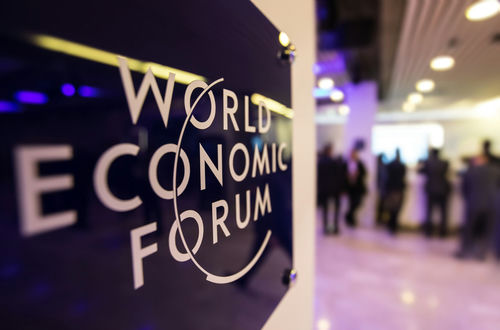After five decades at the helm, Klaus Schwab is stepping down as founder and leader of the World Economic Forum, leaving behind a legacy defined by controversy and globalist ambition. His infamous “Great Reset” agenda sparked fierce opposition worldwide, and now, amid scandal and surging populism, the WEF faces a make-or-break moment under new leadership.
Klaus Schwab Bows Out: The Curtain Falls on Globalist Ambitions
Klaus Schwab—the man who spent half a century telling the world’s richest and most powerful how to run your life—has resigned as executive chairman of the World Economic Forum. Schwab, who founded the WEF back in 1971, leaves an organization mired in controversy, facing accusations ranging from elitism to outright attempts at social engineering. His “Great Reset” agenda, hatched in the chaos of COVID, became a rallying cry for every technocrat who thinks your freedom is a relic of the past. Now, as Schwab steps back into a non-executive role, we’re left to wonder: Is this the end of the globalist fever dream, or just another chapter?
For decades, Schwab’s Davos summit was where billionaire CEOs, heads of state, and unelected bureaucrats gathered to decide what “the future” should look like—usually with you footing the bill and losing your say. The WEF’s mission, promoting “public-private cooperation,” sounded lovely if you’re a multinational corporation or a European central banker, but it left ordinary working people out in the cold. As the forum’s influence spread, so did public mistrust, especially as Schwab’s “stakeholder capitalism” started to look a lot like good old-fashioned cronyism in a new suit.
The Great Reset: Utopian Marketing or Power Grab?
Schwab’s “Great Reset” project—unveiled as a fix-all for the post-pandemic world—sparked a global backlash for its brazen ambition and lack of democratic legitimacy. The plan was simple: use every crisis, from viruses to “climate emergencies,” as an excuse to remake the global economy, upend private property, and hand more control to unelected “experts.” The backlash was swift, especially from those who actually work for a living and like owning things. Critics from across the political spectrum accused the WEF of pushing an agenda that put global elites in the driver’s seat while everyday citizens lost control over their income, their property, and even their own bodies.
🔥🧵 THREAD: THE FALL OF SCHWAB
Why was Klaus Schwab, the godfather of globalism, pushed out of the World Economic Forum after 55 years in charge?
His own staff blew the whistle.
Here’s what they exposed—and why it shatters the Great Reset 👇
1/18 pic.twitter.com/NLIUqutLDQ
— George Christensen (@NationFirstAust) April 23, 2025
Internal problems didn’t help. In the past two years, the WEF has been rocked by allegations of discrimination, harassment, and gross mismanagement. While external reviews cleared Schwab personally, the organization’s reputation has taken a beating. Even some of the board’s own members were reportedly blindsided by Schwab’s announcement, a sign that the once-ironclad grip at the top is slipping as fast as the trust of the public.
What’s Next: Will Davos Survive without Its Puppetmaster?
With Peter Brabeck-Letmathe, the former Nestlé CEO, stepping in as chairman, the WEF faces a crossroads: double down on globalist overreach or attempt meaningful reform in the face of growing skepticism. Schwab says he’ll focus on writing his memoirs, but his shadow will loom over the forum for years. The leadership transition is expected to finish by 2027, but the real question is whether the WEF can survive the mounting populist pushback and the growing sense—especially in America—that technocratic globalism is out of touch and out of time.
Straight out of a Horror Movie ‘Klaus Schwab’ of the World Economic Forum steps down from causing Global Tyranny. pic.twitter.com/PDURwcGOGy
— Liz Churchill (@liz_churchill10) April 21, 2025
Corporate partners and world leaders are reportedly reassessing their ties to the WEF, with many wary of being associated with a brand so synonymous with elitism and overreach. Meanwhile, for millions of ordinary Americans who’ve watched as their jobs, communities, and freedoms were put on the chopping block for “global progress,” Schwab’s resignation feels like a crack in the wall—a sign that maybe, just maybe, the tide is turning in favor of common sense and constitutional values.
The End of an Era, or Just a Rebranding?
The WEF’s annual Davos meetings, once marketed as the ultimate forum for “improving the state of the world,” have become lightning rods for criticism, protests, and conspiracy theories—many of which have turned out to be uncomfortably close to the truth. With Schwab out, the forum’s new leadership faces a daunting task: restore credibility, distance itself from the “Great Reset” overreach, and prove it’s not just a club for global elites to plot the next social experiment.
For those who believe in the Constitution, limited government, and the right to live your life free from globalist meddling, Schwab’s exit is a small but satisfying victory. It’s a reminder that no matter how much money, influence, or utopian rhetoric the elite class deploys, the will of ordinary people—grounded in family, faith, and freedom—can still bring the house of cards crashing down.
Sources:
Financial Times: Schwab to step down as World Economic Forum chair
World Economic Forum: Klaus Schwab Biography

